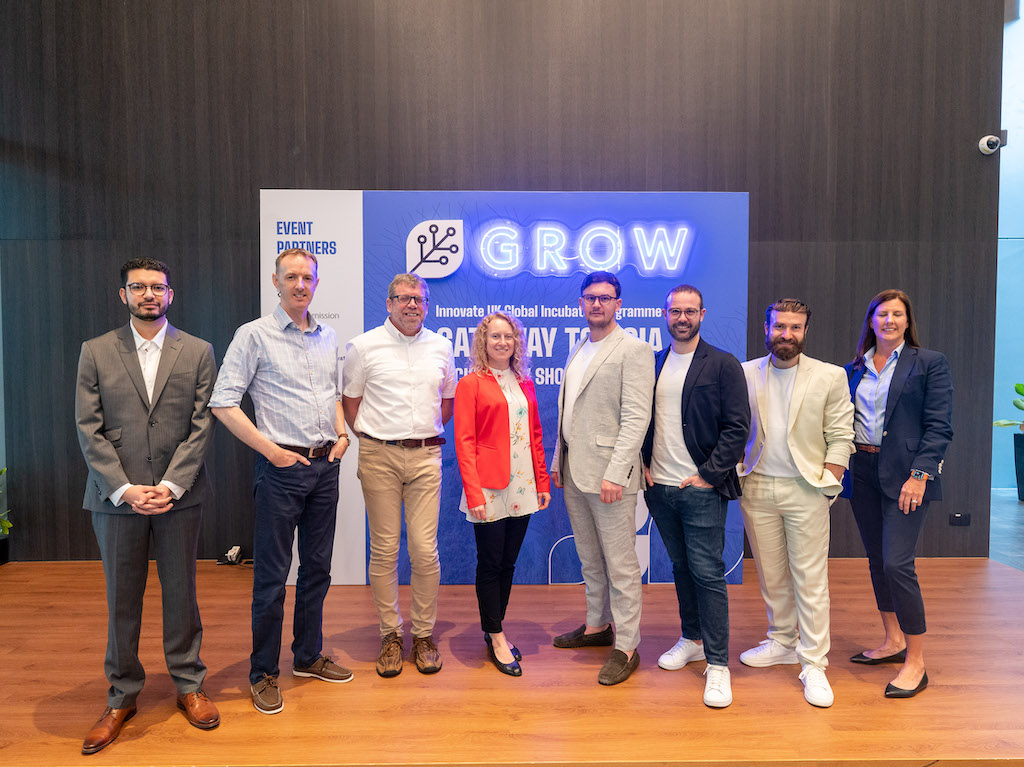4 Mins Read
From improvements to yield, cost savings, and increasing climate resilience, there is much to change about the way we make food, especially given how much impact climate change will have on global supply chains, particularly in Southeast Asia.
I found it fascinating to watch eight innovative agri-tech start-ups from the United Kingdom give their grand pitch in Singapore, a country that has little agricultural activity, at the Gateway to Asia Technology Showcase as part of Innovate UK Global Incubator Programme, and each of them left me feeling inspired and hopeful about the future of food. Here’s everything you need to know about each company and its mission.
OlaTek
Did you know that approximately 30% of all fish does not end up on our plates, but rather in our ocean, as waste? Further, this waste results in the contamination of marine ecosystems. Given how much we fish (and how much fish we consume), that’s a significant waste stream that can be upcycled. This is why start-ups like OlaTek are turning fish waste into something valuable- the team is currently working on a proof-of-concept whereby no fish waste gets sent back into the ocean. Even though they’re only just starting with lubricants for the F&B industry, they are expanding to other use cases.
Koolmill
If you’ve heard about Software-as-a-Service, meet Machinery-as-a-Service. Koolmill aims to develop rice harvesting technologies that reduce grain loss and improve efficiency during production by creating a gentler way to process rice. The company’s mission is to help us use what we have more effectively and their motto, which left me giggling, is “be nice to rice”.
Straw Innovations
Southeast Asians love their rice, and like Koolmil, this company also wants to transform the industry. When rice gets harvested, its stems and leaves (also known as the straw) get left behind because it’s tricky to collect them, and they end up rotting or burning. This process releases methane, a potent greenhouse gas (and a key reason for rice’s hefty environmental footprint). Straw Innovations is developing a rice AND straw harvester, allowing you to leave less of a stubble (!), a cleaner way to shave the world (excuse the pun).
Fotenix
This company says it wants to create the metaverse of agriculture. With a slew of cool videos showing how they use small cameras to take pictures of plants growing in high-tech farming environments, this company uses these pictures to develop digital twins that can give you an amazing array of insights. Imagine being able to see when a plant gets diseased, the presence of pests and so much more without actually going to see the plant. Turning these images into assets, this company brings the real world into the digital one to help you better grow food.
Intelligent Growth Solutions
A vertical farm technology company founded by an actual farmer (fairly rare, believe it or not!), this startup has its own patented solutions of vertically-stacked growing systems to create ideal conditions to grow your plants. In a country with highly competitive uses for land, innovations in this space would allow us to maximise food production using far less space than conventional land-based agriculture.
uFraction8
As the cultivated meat market gains traction, key challenges around scaling remain, mostly tied to production capacity. The industry needs more efficient, resilient solutions in order to both lower costs of production and achieve economies of scale. This start-up is innovating new ways to build what it describes as the most efficient and scalable filtration solutions that have ever existed to solve the problems with harvesting and processing microbial cell cultures. The company’s enabling technology could remove major barriers as their product could be an important enabling technology that could make meat from cellular agriculture more accessible.
Bright Biotech
Bright Biotech is part of the relatively new sector of molecular farming, a type of food production technology that makes use of plants as production houses. The company uses chloroplasts to obtain large amounts of high-value proteins from plants using light, which results in scalable and low-cost proteins that can help cultivated meat players overcome their protein supply challenges.
Higher Steaks
Last but not least, is Higher Steaks, the startup with the punniest name by far. The company specialises in cultivated fatty meat and unveiled the world’s first cultivated pork belly and bacon without the use of genetic engineering last year. In fact, the company shared that they are working on “dong po rou” (braised pork belly) specifically for the Asian market. It’ll be interesting to see how they replicate the texture and melty characteristics of such a dish. High stakes indeed.
Mounting challenges means a host of opportunities for innovative startups to truly revolutionise the way we produce and consume food. It was empowering to witness the passion of the founders of these companies as they take on the opportunity of a lifetime: securing a stable, nutritious, and climate-friendly future of food.



